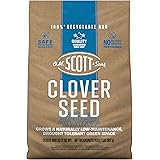KING BIRD Large Raised Garden Bed with Legs Galvanized Elevated Planter Box 48×24×30 in for Backyard, Patio, Balcony, 400lb Capacity, Dark Grey
10% OffJERIA Raised Garden Bed,Galvanized Raised 2×2×1ft Planter Boxes Outdoor with Easy Assembly, Round Garden Bed for Vegetables, Fruits, Flowers
16% OffComposting is a simple and effective way to reduce food waste while creating nutrient-rich fertilizer for your garden. In this blog post, we’ll explore the joy of composting and how you can get started with it at home.
What Is Composting?
Composting is the process of breaking down organic matter such as fruit and vegetable scraps, eggshells, coffee grounds, and leaves into a rich soil amendment that can be used to nourish plants. It involves collecting these materials in a bin or pile and allowing them to decompose over time through exposure to air and water. The result is a dark, earthy material that smells like fresh soil and is teeming with beneficial microorganisms.
Why Should You Compost?
There are many reasons why composting is a great idea for both your garden and the environment. Here are just a few:
1. Reduce Food Waste – According to the Environmental Protection Agency (EPA), food waste accounts for about 20% of landfill waste. By composting your food scraps instead of throwing them away, you can significantly reduce the amount of waste going to landfills.
2. Create Fertilizer – Compost is an excellent source of nitrogen, phosphorus, potassium, and other essential nutrients that plants need to grow healthy and strong. Instead of buying expensive synthetic fertilizers, you can make your own using compost.
3. Improve Soil Health – Compost helps improve soil structure by increasing its ability to retain moisture and aeration. This leads to better root growth and plant health.
4. Save Money – Composting is free! All you need is some space and a little bit of effort to start turning your food waste into valuable fertilizer.
How To Get Started With Composting At Home
Getting started with composting is easy. Here are the basic steps:
1. Choose A Location – Find a sunny spot in your yard where you can place your compost bin or pile. Make sure it’s close enough to your kitchen so that you can easily add food scraps but far enough away from your house so that any potential odors don’t bother you.
2. Collect Materials – Gather together all the ingredients for your compost pile including food scraps, leaves, grass clippings, shredded paper, and anything else that’s biodegradable.
3. Build Your Pile – If you’re making a bin, follow the instructions provided by the manufacturer. For a pile, simply create a mound of your collected materials and wet them thoroughly.
4. Turn And Water Regularly – To ensure that your compost decomposes properly, turn it regularly with a pitchfork or shovel to aerate it and mix up the different layers. Also, keep it moist but not too wet.

Mistakes To Avoid When Composting
While composting is generally easy and trouble-free, there are a few common mistakes people often make when starting out. Here are three things to avoid:
1. Not Mixing Ingredients Properly – Too much carbon or too much nitrogen in your pile can slow down decomposition. Make sure to mix your materials well before building your pile.
2. Overwatering – While you want your pile to stay moist, adding too much water can lead to anaerobic conditions which can produce bad smells and attract vermin.
3. Not Turning Regularly – Failing to turn your pile regularly can cause it to become compacted and prevent airflow, leading to slower decomposition rates.
Inspiring Composting Success Stories
Many people have had success with composting and have seen significant improvements in their gardens as a result. Here are two inspiring stories:
1. Linda’s Story – Linda lives in a small townhouse and doesn’t have much room for a traditional garden. However, she has been able to create a thriving container garden on her balcony thanks to composting. She saves all her food scraps in a compost bin under her sink and uses the resulting fertilizer to feed her plants. As a result, they’re lush and healthy despite being confined to small spaces.
2. John’s Story – John was tired of spending money on store-bought fertilizer for his lawn and decided to try composting instead. He built a large pile in his backyard and added all his food scraps, grass clippings, and leaves to it. After several months, he applied the finished compost to his lawn and saw immediate results. His grass grew greener and thicker than ever before, and he hasn’t needed to use chemical fertilizers since.
Conclusion
Composting is a fun and rewarding hobby that can help you reduce waste, save money, and create beautiful gardens. Whether you live in a tiny apartment or a sprawling suburban home, there’s no excuse not to give it a try. So what are you waiting for? Let’s get started with composting today!
Related Content
- Everything you need to know about composting, from bins to benefits
- Design Dream Gardens with Ease
- Athens Services opens new Sustainability Center
- Moving In Or Out? Donate, Recycle, And Compost To Reduce Waste In Iowa City
- UMaine Extension offers webinar bundles for last-minute holiday gifts – Piscataquis Observer














































